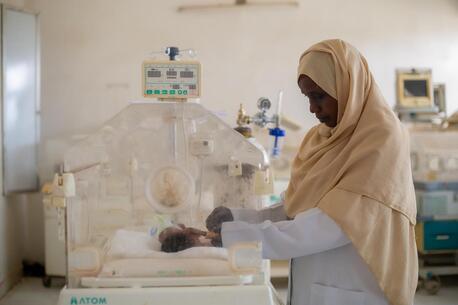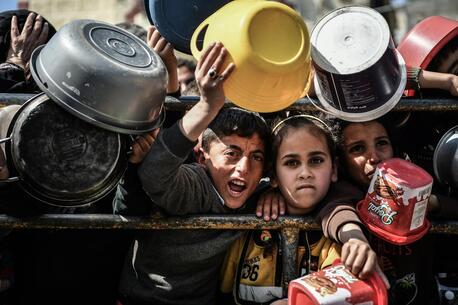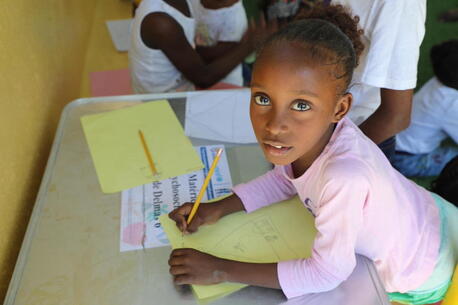
What It's Like to Be a Pediatric Nurse in Sudan Right Now
Auatf Mater Jaber, who works in the neonatal unit at Wad Madani Children's Hospital in Gezira State, southeast-central Sudan, describes how she manages to care for sick babies when medicines are in short supply. “I don’t see children here as cases, but as part of my family and of me.”
Good quality newborn care services are critical — especially in a humanitarian crisis
Seven months of war in Sudan have pushed the country to the brink of a generational catastrophe. UNICEF is working with partners to reach children and families in Sudan with urgently needed emergency supplies and services.
Those needs are immediate and immense.
Since the outbreak of full-scale armed conflict in April 2023, Wad Madani Children's Hospital in Sudan's Gezira State has been flooded with patients as many displaced families fleeing violence continue to arrive in the area, seeking safety.
"If there's a treatment that's missing, we try to find an alternative," says Auatf Mater Jaber, a pediatric nurse in the hospital's neonatal unit for the past 27 years. "If someone has an extra medicine, we give it to another baby."
Jaber stays at the hospital because transportation to and from home is challenging. She begins each shift with a walk through the NICU to check on each baby — some were delivered early, others were born with complications, all requiring extra care and monitoring.
Jaber takes her time, checking intravenous lines, administering medication, adjusting feeding tubes and oxygen masks and updating records. She makes sure each baby is comfortable.
While mothers will visit the unit occasionally to feed and nurse their little ones, it is Jaber and her colleagues who are there around the clock, taking turns to observe while monitors beep constantly.
"I love working in this department and helping these innocent babies," Jaber says. "I feel their pain, even though they can't complain. By their crying, I can understand how they feel."
Sudan's child displacement crisis is the largest in the world
Sudan is now the largest child displacement crisis in the world, with 3 million children fleeing widespread violence in search of safety, food, shelter and health care. Most are still in Sudan, while hundreds of thousands are sheltering in sprawling makeshift camps in neighboring countries.
Some 14 million children in Sudan are in urgent need of lifesaving humanitarian assistance. Many of them are living in a state of perpetual fear — fear of being killed, injured, recruited or used by armed actors.
In a statement released Nov. 6, UNICEF noted that "[r]eports of conflict-related sexual violence, including rape, have been rampant, and with fighting only intensifying in recent weeks in places like Khartoum, Darfur,and Kordofans, the very real worry is that child rights violations will continue to spike."
So far, UNICEF has received allegations of over 3,100 severe violations, including the killing and maiming of children.
UNICEF is staying and delivering for children in Sudan — but more help is needed
UNICEF is on the ground in Sudan — in active war zones as well as areas receiving large numbers of displaced children and families — delivering urgent lifesaving services to children. Priorities include providing safe water, vaccines, nutrition and learning support.
"Sudan does have a health system, it does have a schooling system, it does have a water system," Mandeep O’Brien, UNICEF Representative in Sudan, said during a recent briefing with UNICEF National Committees, including UNICEF USA. "They are extremely fragile and under attack. But we're doing everything we can to keep these systems and the frontline workers up and running."
Partnerships with local and national NGOs have been expanded to maximize the impact of all emergency response efforts. As a result:
- over 5.9 million children and mothers have so far been reached with urgently needed health supplies
- over 4 million children under age 5 have been screened for malnutrition, and 200,000 of them are currently receiving treatment for severe acute malnutrition
- over 3.7 million children and families have been reached with safe drinking water
- over 500,000 children and caregivers have received psychosocial support
Despite these encouraging results, humanitarian needs are quickly outpacing resources — while concerns mount that, with everything else going on in the region and the wider world, Sudan's crisis will be forgotten.
As in all emergency situations, flexible funding from donors is critical to allow aid workers to allocate resources swiftly and effectively in a rapidly evolving crisis.
Help UNICEF respond to emergencies around the world. Donate today.
Auatf Mater Jaber is one of several frontline workers featured in this story for unicef.org by Proscovia Nakibuuka Mbonye and Sara Awad.


